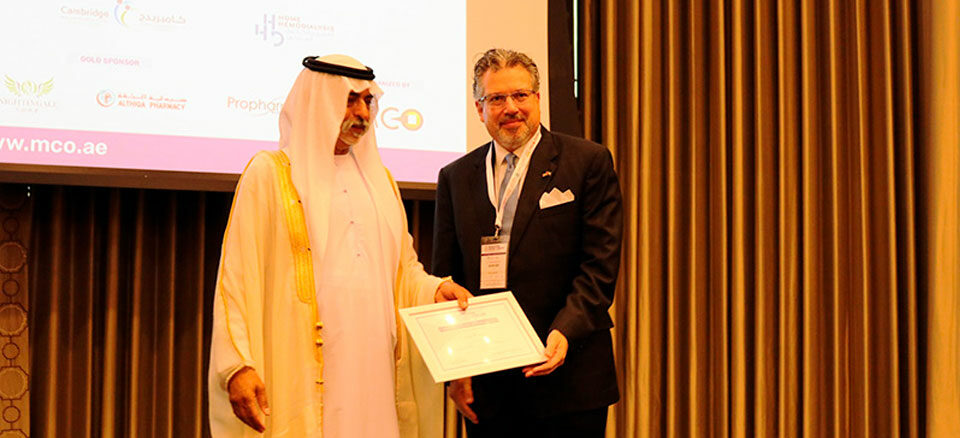Investment in specialized rehabilitation and long-term outpatient facilities needed to cope with demand
The market is seeing a move to specialized centres of excellence, also referred to as CoEs, including home health care services, post-acute care rehabilitation, long-term rehabilitation and primary care services, according to Dr Howard Podolsky, CEO of Cambridge Medical and Rehabilitation Centre (CMRC). Dr Podolsky’s made his comments during a keynote speech at the Rehabilitation Longterm & Homecare conference which was recently held at the Four Seasons Hotel in Abu Dhabi.
During his presentation, Dr Podolsky revealed that Home healthcare is a rapidly growing market in the GCC region, and could easily hit USD 4.5 billion plus by 2020. He also noted that the emphasis on specialization creates a streamlined approach to better healthcare delivery, and relieves the pressure on general medical service providers and hospitals.
Dr Podolsky urged his audience to consider medical intervention as only one part of the ‘Continuum of Healthcare’, which sees an emphasis on healthy living and prevention to stop medical concerns developing in the first place. When issues are discovered, Dr Podolsky notes that primary diagnosis and treatment should be followed by post-acute rehabilitation through outpatient facilities that free up hospital beds, and allow patients access to a better quality of life at home.
“An integrated view of healthcare and rehabilitation allows us to examine the system, and identify bottlenecks. At present, 20-30% of public hospital beds are being occupied by long-term and post-acute care rehabilitation patients. This places tremendous stress on public hospital facilities, and also reduces patients’ recovery chances and quality of life. By channelling these cases towards rehabilitation specialists that can also provide home and outpatient care, we can free up these beds to deal with more immediate cases,” he said.
Demand for long-term rehabilitation services in the GCC is being driven by several correlated factors. These include high incidences of obesity and Type II diabetes, and an ageing population. As per EY research, life expectancy across the GCC has risen from 62 years in 1970 to around 77 years by 2012. Meanwhile, infant mortality has fallen. While these improvements place the GCC at par with most developed countries, they also create pressure on healthcare services. Age-related ailments are a key driver of healthcare demand.
“The overall healthcare market in the GCC is expected to head north of AED 69 billion by 2020. A sizeable chunk of this market is composed of longer-term healthcare and rehabilitation needs – particularly for ageing patients who require recurring care. Addressing these needs through specialist providers will enable the healthcare system to function more effectively. Primary healthcare providers can conduct triage, and channel patients towards specialist providers better able to meet their needs both in-facility and at home. This creates better health outcomes, and reduces disruption to patients’ lives and routines,” Dr Podolsky added.
The Cambridge Medical & Rehabilitation Center was founded to address demand for rehabilitation and long-term care provision in the GCC. With facilities in Dubai, Abu Dhabi and Al Ain, the Center serves as a nexus for world-class physicians, physiotherapists, and speech-language pathologists that offer tailor-made care to patients with short and long-term rehabilitation needs, and those with chronic health issues.

